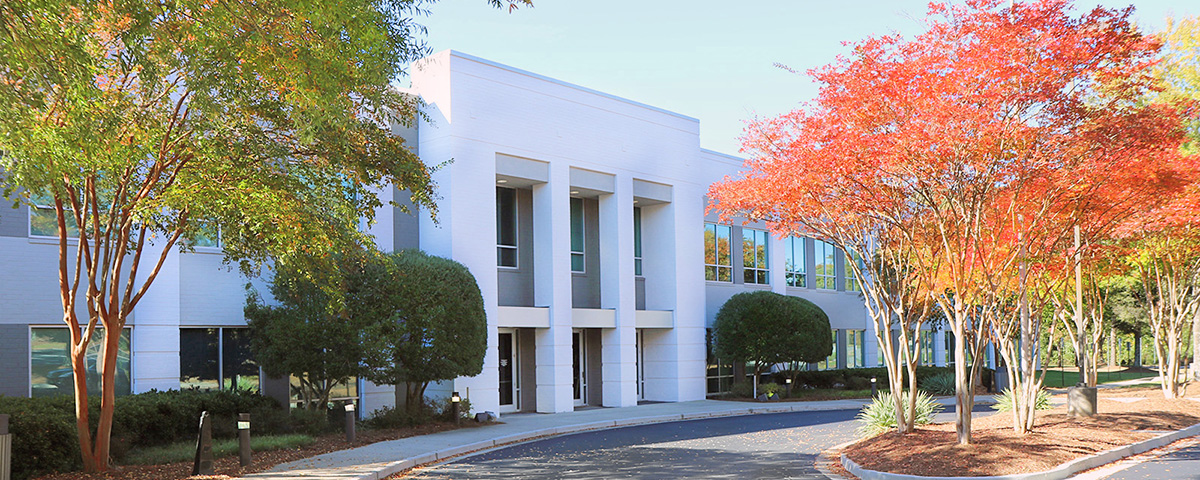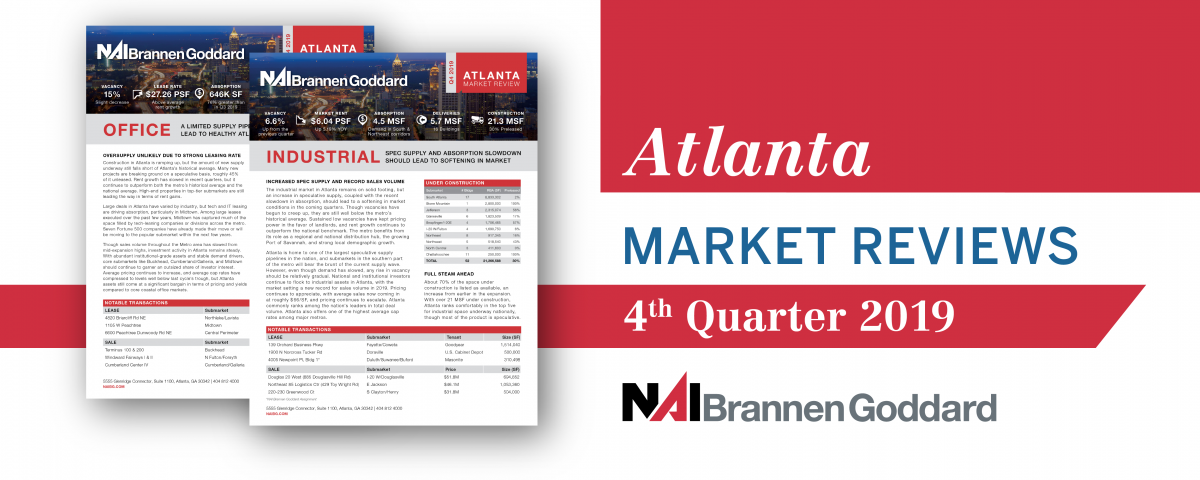
Jim Devaney and Collin Devaney Facilitate $11M Sale of North Fulton Office Building
November 21, 2019
NAI Global Ranked Among Top Five Commercial Real Estate Brand in the 19th Annual Lipsey Survey
February 20, 2020Atlanta Office & Industrial Market Reviews: Q4 2019

FOURTH QUARTER, 2019
Construction in Atlanta is ramping up, but the amount of new supply underway still falls short of Atlanta’s historical average. Many new projects are breaking ground on a speculative basis, roughly 45% of it unleased. Rent growth has slowed in recent quarters, but it continues to outperform both the metro’s historical average and the national average. High-end properties in top-tier submarkets are still leading the way in terms of rent gains.
Large deals in Atlanta have varied by industry, but tech and IT leasing are driving absorption, particularly in Midtown. Among large leases executed over the past few years, Midtown has captured much of the space filled by tech-leaning companies or divisions across the metro. Seven Fortune 500 companies have already made their move or will be moving to the popular submarket within the next few years.
Though sales volume throughout the Metro area has slowed from mid-expansion highs, investment activity in Atlanta remains steady. With abundant institutional-grade assets and stable demand drivers, core submarkets like Buckhead, Cumberland/Galleria, and Midtown should continue to garner an outsized share of investor interest. Average pricing continues to increase, and average cap rates have compressed to levels well below last cycle’s trough, but Atlanta assets still come at a significant bargain in terms of pricing and yields compared to core coastal office markets. (See full review)
The industrial market in Atlanta remains on solid footing, but an increase in speculative supply, coupled with the recent slowdown in absorption, should lead to a softening in market conditions in the coming quarters. Though vacancies have begun to creep up, they are still well below the metro’s historical average. Sustained low vacancies have kept pricing power in the favor of landlords, and rent growth continues to outperform the national benchmark. The metro benefits from its role as a regional and national distribution hub, the growing Port of Savannah, and strong local demographic growth.
Atlanta is home to one of the largest speculative supply pipelines in the nation, and submarkets in the southern part of the metro will bear the brunt of the current supply wave. However, even though demand has slowed, any rise in vacancy should be relatively gradual. National and institutional investors continue to flock to industrial assets in Atlanta, with the market setting a new record for sales volume in 2019. Pricing continues to appreciate, with average sales now coming in at roughly $66/SF, and pricing continues to escalate. Atlanta commonly ranks among the nation’s leaders in total deal volume. Atlanta also offers one of the highest average cap rates among major metros. (See full review)
